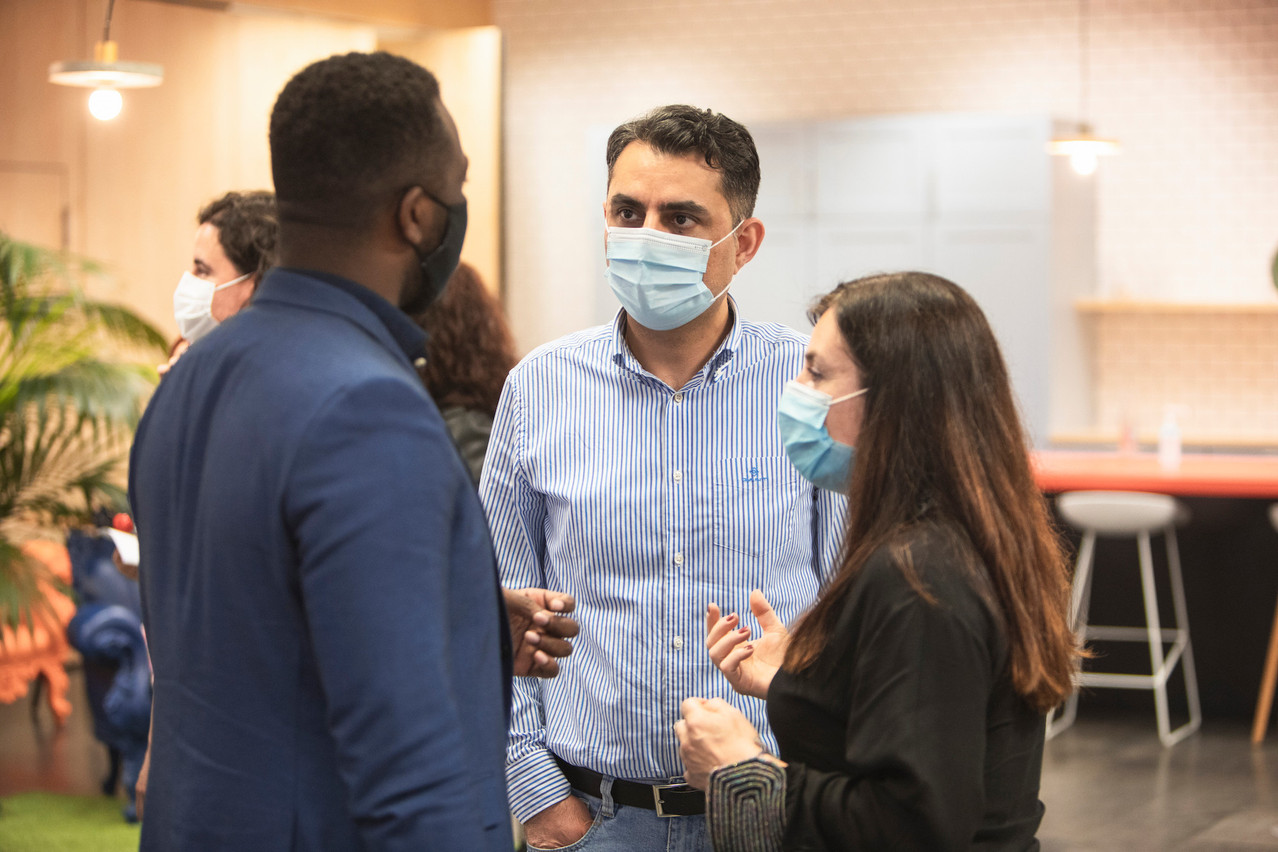"Start-ups see opportunities where others see problems (...) and after two difficult years, start-ups play a key role,” said the minister of economy Franz Fayot (LSAP) at the opening of the traditional handover ceremony between a graduating class and a new one.
In the absence of Luxinnovation's CEO, Sasha Baillie, its senior advisor Stéphanie Silvestri commented on the increased quality of the applications received. Fewer start-ups (214) than the previous class applied, but "very good quality products and business models, as well as larger teams," were among the candidates.
The CEO of LuxProvide, Pascal Bouvry, said he was happy to be part of the programme: three start-ups, including two from Luxembourg (Databourg and RSS-Hydro), are in the starting blocks for the 12th promotion. "Start-ups are important to boost business," he said. "And we are happy to be part of the emergence of the next unicorn."
The new class includes three start-ups in high performance computing, five in health - a new focus for Luxembourg - five in space and seven in ICT.
Twelve of the 15 start-ups in the 11th class have completed the six-month acceleration programme, which is run in collaboration with Technoport. This includes five space start-ups who received €50,000 at the start, plus €100,000 at the end--in addition to general support.
: thanks to artificial intelligence, the solution helps companies to reduce their outstanding payments by 30% and improve their operational efficiency by 20%. It predicts when customers will pay their bills, and segments the receivables portfolio according to various payment models and risk profiles.
: an award-winning and affordable administration, compliance and governance platform for SMEs in the financial sector that automates their operations, replaces stand-alone tools and enables users to benefit from the efficiency of data integration.
: a communication and collaboration platform that enables companies to track chemicals and provide recycling information. It enables customers to recover their materials and products after their lifetime and reduce their environmental footprint.
: a B2B collaboration software that helps developers, agencies and real estate funds to plan, manage and analyse their construction and marketing projects more efficiently. This is achieved through a careful selection of powerful in-house modules as well as third-party APIs.
: an effective, language-free pedagogical training programme to improve cognitive and mathematical skills in young children. With the support of Script (an infrastructure within the ministry of education), the Magrid solution is now available to all pre-school children in public schools in Luxembourg.
: a mobile application where users complete wellness challenges to earn exclusive rewards from brands, like for example, walking 20,000 steps for a free yoga class.
: an application for creating and publishing content for social networks. It turns any link or content into an Instagram story ready to be published. Web pages, podcasts, texts, photos, tweets-- share anything in stories. The app instantly generates multiple designs for you to choose from.
BlackSwan Technologies: building autonomy in space is a cornerstone of the future space economy. Its current suite of three products is designed to meet the expected 10-fold increase in space traffic by expanding the range of autonomous activities that can be performed with small satellites, reducing operating costs and lowering the risk of collision.
: a solution of proven software-defined ground systems and innovative antenna concepts to enable satellite operators to break free from the current costly and inherently fragmented approach to command and control of their satellites and enter a world of seamless connectivity. "Always available", 24/7.
: with a fleet of built and launched nanosatellites, Mission Space is developing an advanced system for forecasting and monitoring one of the world's highest priority natural hazards: space weather.
: develops high-performance, radiation-tolerant computers to meet the growing needs of autonomous systems, machine learning in space and other data-intensive technologies. The current underserved market consists primarily of near-Earth applications such as broadband communications and high-resolution Earth observation.
: aims to become the backbone of the lunar economy by deploying infrastructure that enables lunar development. Its first project, . Its lunar customers will be able to maximise their return on investment while minimising their costs and risks with Harmony services from 2024.
This story was first published in French on . It has been translated and edited for Delano.
